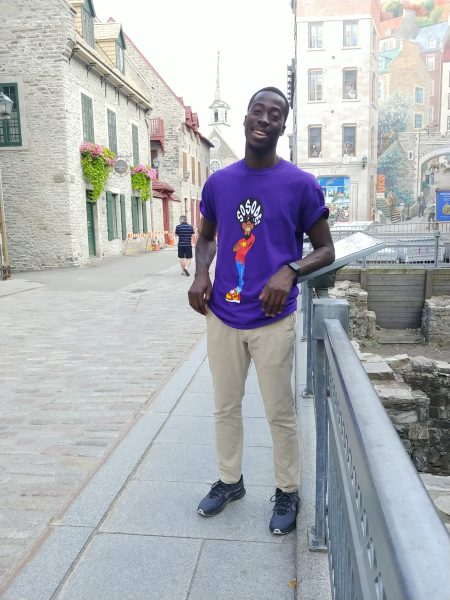Malick Coulibaly
shares experience as SECT 3rd cohort alum
Hear from Malick Coulibaly, SECT cohort 3 alum, as he shares his experience joining the program as well as his thoughts on learning more about renewables as an Electrical Engineer with over 5 years of experience in the automation and industrial sector!

Malick started getting involved in the energy sector when he was researching and developing project ideas implementing appropriate technologies for energy access, starting with solar energy. He worked with the Collective of Appropriate Technologies at the GRILA (Groupe de Recherche et Initiatives pour la Liberation de l’Afrique), working on documenting energy access technologies. These technologies were developed to harvest renewable energy and offer new solutions for developing communities to better their lives when they are properly integrated.
When Malick decided to shift careers focusing more on the energy sector, he found the opportunities were small. He was already an established professional in the automation sector but had difficulties leveraging his learned skills without tangible work experience. That’s why he participated in the Student Energy Career Training (SECT) program – to gain experience working on a real-world energy project, learning from experts with multiple backgrounds about project development, financing, and more. He’s grateful for working with SECT partner, Pressure Corp, for their amazing project on battery energy storage systems.
What was the best part of SECT for you?
The best part of the Student Energy Career Training Program for me were the specialized curriculum webinars and workshops. They were similar to masterclasses.
I was able to participate in most of the webinars, including the project development and financing program for which I was accepted. The program coordinators and coaches did an outstanding job of introducing us to various experts in the energy sector.
I think one of the challenges when starting in the energy sector nowadays, is piecing together the various concepts and information as it requires a multidisciplinary approach, diverse skill sets and knowledge from different fields of expertise. That’s one thing the specialized curriculum webinars and workshops have done really well for me.
It’s from this perspective that I’ve appreciated the teaching of the webinar speakers. At the end of the hour-long webinar, I was able to connect a lot of my own research on the topic but I also felt like I had developed a deeper understanding of the subject. The speakers shared more resources that helped me dive more into what I had just learned and I was able to connect with some of them on social media afterwards for more.
I learned about the electricity and gas markets, project analysis, planning and permitting. Aside from the engineering perspective of developing a project which I’m familiar with, I learnED the different stakeholders that take part in a renewable energy project, the ownership structure and risk Management, and the funding scheme that are involved when developing a renewable energy project.
One more thing that I enjoyed was learning about our speakers’ professional background. Some have transitioned to the energy sectors after years of experiences in the traditional fossil fuel sector and they were able to share the transitioning experience which was valuable because I was participating in the Student Energy Career Training Program to professionally jump into the energy sector.
How did SECT impact your career and interest in energy?
The Student Energy Career Training program has provided me with a tangible experience working on the practicum project which I thoroughly enjoyed participating in.
The job market has its own sets of rules when applying for opportunities when you’re already an established professional. Transitioning from one sector to another is not always easy. It’s sometimes difficult to leverage the knowledge and skills you have accumulated without a tangible experience in the sector you’re looking to get into. When I was applying for opportunities, I was either asked to prove my skill sets in the sector or start at a lower rate because it’s considered my first experience in the energy sector.
Participating in the practicum project and developing solutions for the student energy career training partners – Pressure Corp, I feel more comfortable stepping into the energy sector and already I have better opportunities to look for than what I had before joining the program.
Learn about the Career Training Program and submit your application today! Applications are still open until August 31, 2023 at 23:59 PDT.